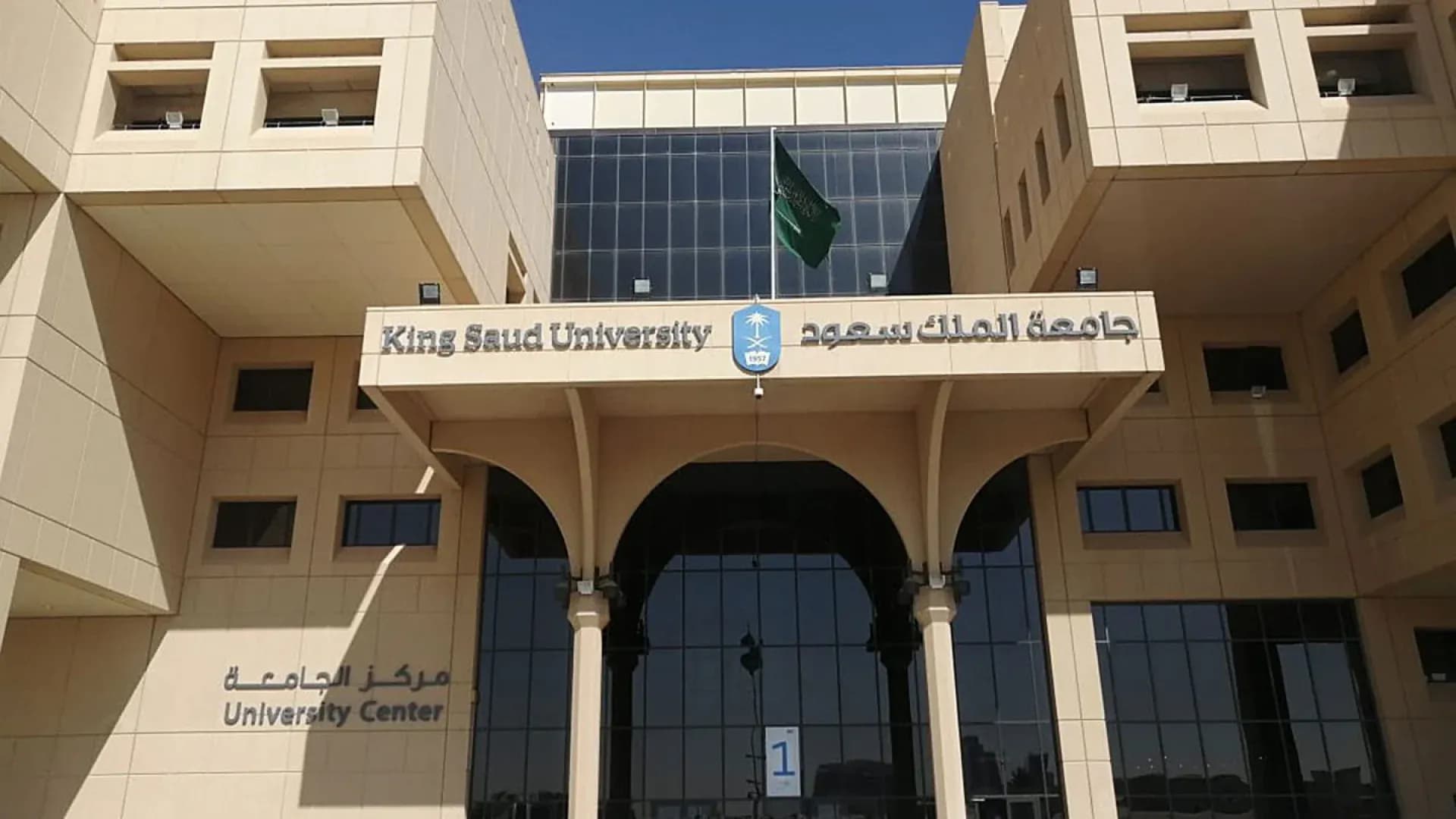
Established in 1957 by King Saud bin Abdulalziz, King Saud University (KSU) stands as the pioneering public university in Riyadh, Saudi Arabia. Initially founded to address the nation's shortage of skilled workers, KSU has evolved into a prominent institution of higher education. Originally named Riyadh University, it underwent a transition to its current name in 1982 and attained independent non-profit status in 2023.
With a current student body comprising 40,000 individuals, including 7% international students, KSU stands as a diverse and inclusive academic community. The university has implemented measures to ensure the equal and constructive participation of female students, including a dedicated disciplinary panel and a supervisory center monitored by female faculty members. KSU offers a broad spectrum of courses spanning the natural sciences, humanities, and professional studies, with many programs being tuition-free.

The instructional language for undergraduate programs at KSU is a combination of English and Arabic, depending on the selected major. Renowned for its medical programs, KSU holds a prominent position among Arab universities, reflecting its commitment to delivering high-quality education across various disciplines.
King Saud University (KSU) has played a pivotal role in Saudi Arabia's educational landscape since its establishment in 1957. Initiated by King Saud bin Abdulaziz, the university was a response to the nation's need for skilled professionals. Prince Fahd, the Minister of Education, declared the foundation of the university as a cultural and scientific hub in 1957. The official Royal Decree No. 17 in 1957 marked the birth of King Saud University, emphasising the dissemination of knowledge, scientific exploration, and contributions to Islamic civilisation.
Over the years, KSU underwent significant expansions and transformations to meet the evolving needs of the nation. In the period between 1958 and 1960, several colleges were established, including the Colleges of Sciences, Business (now Public Administration), and Pharmacy. Royal Decree No. 112 in 1961 acknowledged KSU as an independent legal entity. The university continued to grow with the establishment of the College of Agriculture in 1965, and control over the Colleges of Engineering and Education was assumed.
Several milestones marked the university's progression, including the establishment of the College of Medicine in 1969 and the Arabic Language Institute in 1974. The inclusion of female students in the College of Arts and the College of Public Administration in 1961/1962 marked a historic moment. In 1980, KSU expanded its reach with branches in Abha and Qassim, offering diverse programs in agriculture, veterinary medicine, economics, and administration.
Renamed King Saud University in 1982, the institution celebrated its 25th anniversary, embracing its original identity at the behest of King Khalid bin Abdulaziz. Subsequent years witnessed the establishment of new colleges, including Computer and Information Sciences and Architecture and Planning in 1983. The university continued to adapt to societal needs, creating the College of Languages and Translation in 1990 and the Institute of Languages and Translation in 1994.
As KSU approached its 50th anniversary, the university continued its commitment to educational excellence, research, and community service. With branches across regions and an ever-expanding academic portfolio, King Saud University stands as a testament to Saudi Arabia's dedication to fostering knowledge, innovation, and intellectual growth.
King Saud University (KSU) offers a diverse array of undergraduate courses across various disciplines, providing students with comprehensive educational opportunities. The university's commitment to accessible education is evident through tuition-free programs, and scholarships are available for both Saudi and international students. The medium of instruction in undergraduate programs is bilingual, encompassing English and Arabic. The Languages Unit at KSU provides English-language support at all levels, ensuring students receive the necessary assistance to excel in their studies.
The academic structure at KSU is organised into different colleges, each specialising in specific fields. The Colleges include the Preparatory Year Program, Science Colleges (such as Architecture and Planning, Business Administration, Engineering, Science, Foods and Agriculture, Computer and Information Sciences), Health Colleges (Medicine, Dentistry, Pharmacy, Applied Medical Sciences, Nursing, Prince Sultan for Emergency Medical Services), Humanities Colleges (Arts, Education, Law and Political Science, Languages and Translation, Tourism & Archaeology, Arabic Language Institute, Teaching, Physical Education & Sports), and Community Colleges (Applied Studies and Community Service, Community College in Riyadh).

The College of Science, established in 1958, offers a range of bachelor's degrees in disciplines such as Statistics, Operations Research, Geology, Chemistry, Mathematics, Physics, and more. The College of Business Administration, accredited by the Association to Advance Collegiate Schools of Business (AACSB), includes departments like Accounting, Economics, Finance, Marketing, and Public Administration. The College of Engineering, initiated in 1962, comprises departments like Petroleum Engineering, Chemical Engineering, Civil Engineering, Mechanical Engineering, and Electrical Engineering. The College of Architecture and Planning, College of Pharmacy, and various other colleges contribute to the rich academic landscape of KSU.
Moreover, notable programs and research initiatives, such as the King Abdullah Institute for Nanotechnology and the Riyadh Techno Valley Program, underscore KSU's commitment to cutting-edge research and technological advancements. The inclusion of an electronic Ayat Al Quran program reflects the university's dedication to incorporating technology into diverse aspects of learning and cultural enrichment.
At Saudi Arabia ABC, we aim to take you on a transformative journey through the magic of immersive experiences. Whether you are an adventurous traveller or a curious local seeking hidden gems, our platform offers a rich tapestry of content designed to cap